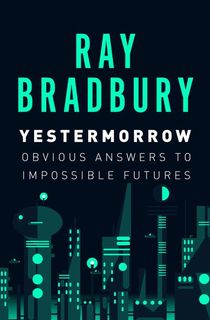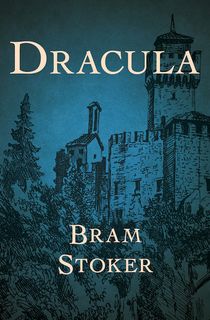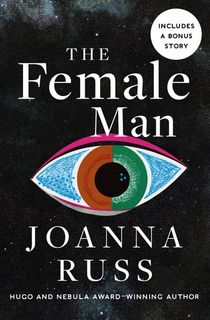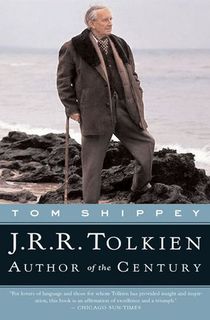The only thing better than geeking out over our favorite authors is watching our favorite authors geek out over their favorite authors. Believe it or not, some of the biggest names in sci-fi and fantasy were once just like us: passionate fans, desperate for their idols to know how much they loved their work. Take a serious mind-trip with us, as we look back at some of the best pieces of fan mail penned by sci-fi and fantasy bigwigs.
Rady Bradbury to Robert Heinlein

Bradbury in 1975.
Photo Credit: Wikimedia CommonsIn 1976, Ray Bradbury wrote a letter to renowned sci-fi author Robert Heinlein. This hand-written note expressed Bradbury’s gratitude for Heinlein’s “influence,” both generally speaking, and on Bradbury in particular. It reads:
“DEAR BOB: YOUR INFLUENCE ON US ALL, FROM 1939 ON, CANNOT BE MEASURED. I CAN ONLY SAY I REMEMBER, WARMLY, YOUR MANY KINDNESSES TO ME WHEN I WAS 19–20–21 YEARS OLD. THAT YOUNG MAN BASKED IN YOUR LIGHT AND WILL CONTINUE TO BE GRATEFUL FOR THE HELP YOU OFFERED WHEN I WAS SO POOR & NEEDFUL! YOURS IN THAT MEMORY - RAY BRADBURY AUG – 1976”
George R.R. Martin to Stan Lee and Jack Kirby

George R.R. Martin teaching at Clarion West in 1998.
Photo Credit: Wikimedia CommonsBack in 1963, a young George “R” Martin–no second “R” yet–penned a sarcastic piece of fan mail to Stan Lee and Jack Kirby, in ironically hyperbolic praise of Fantastic Four #17. Here’s an excerpt:
“You were just about the World’s worst mag when you started, but you set yourself an ideal, and, by gumbo, you achieved it! More than achieved it, in fact–why, if you were only half as good as you are now, you’d still be the world’s best mag!!!”
We must thank George, for showing us that trolling existed well before the existence of the Internet. In 1964, a 16-year-old Martin wrote again to Stan Lee, praising Lee and artist Don Heck's work on Avengers #9 with slightly more sincerity:
"What a story! It was beyond words; the fast-paced action, solid characterization, all gave it that extra oomph and catapulted it into the great class. Stan, old boy, you can put another notch in your pen for this masterpiece."
RELATED: 9 Sagas to Keep You Satisfied Until the Winds of Winter Release Date
Isaac Asimov to Carl Sagan

Isaac Asimov.
Photo Credit: Wikimedia CommonsOver the course of their 25-year friendship, Isaac Asimov wrote many letters to Carl Sagan, expressing his appreciation, respect and love. In 1985, Asimov wrote to Sagan:
“I just heard your talk on nuclear winter on Public Broadcasting. I am so proud of you, I almost burst with it. It was absolutely the sanest best speech I could imagine on the subject. It delighted me so much to find that I was on your side in every sentence of your talk.”
And then, when Sagan married Anne Druyan, in 1980, Asimov sent this limerick:
"Three loud cheers for Carl Sagan and Ann
Who today have become woman and man.
Be your lives bright as day
As the broad Milky Way
As the Big Bang with which all began.”
Bram Stoker to Walt Whitman

Our boy Bram, circa 1906.
Photo Credit: Wikimedia CommonsOur boy Bram wasn’t all vampires and darkness. In fact, he was a major Leaves of Grass fan. Stoker and his pals at Trinity College were so into Whitman’s poetry that they called themselves “Walt Whitmanites.” Here's an excerpt from a letter Stoker wrote to Whitman in 1872:
“If I were before your face I would like to shake hands with you, for I feel that I would like you. I would like to call YOU Comrade and to talk to you as men who are not poets do not often talk ... But be assured of this Walt Whitman—that a man of less than half your own age, reared a conservative in a conservative country, and who has always heard your name cried down by the great mass of people who mention it, here felt his heart leap towards you across the Atlantic and his soul swelling at the words or rather the thoughts.”
Stoker was so nervous that it took him years to actually send the letter to Whitman. When he finally did, the risk was well worth it. Here’s an excerpt from Whitman’s 1876 response:
“BRAM STOKER,—My dear young man,—Your letters have been most welcome to me—welcome to me as a Person and then as Author—I don’t know which most. You did so well to write to me so unconventionally, so fresh, so manly, and affectionately too. I, too, hope (though it is not probable) that we will some day personally meet each other. Meantime, I send my friendship and thanks.”
RELATED: 15 Bloody Good Vampire Books
Anne McCaffrey to John Schoenherr

McCaffrey (seated) with a fan in 2005.
Photo Credit: Anna Creech/Flickr (CC)Anne McCaffrey was so thrilled by illustrator John Schoenherr’s depiction of her dragons, which accompanied McCaffrey’s early stories published in Analog Magazine in 1967, that she wrote him a letter expressing her appreciation. Here’s an excerpt:
“You did me and my dragons real proud and I spent a half an hour drooling over the new black and whites and the cover ... those are mighty appealing dragons. Honest, I nearly cried ... which at my age would be a little the other side of enough. But the sketch was so much, so very much what I had imagined in my mind for the scene, I’d swear you were a telepath yourself.”
Awwww!

John Schoenherr's dragons.
Photo Credit: John and Ian SchoenherrJames Tiptree Jr. to Joanna Russ

Alice Bradley Sheldon, a.k.a. James Tiptree Jr.
Photo Credit: Wikimedia CommonsAlice Bradley Sheldon, the sci-fi author who wrote under the penname James Tiptree Jr., wrote extensive letters to sci-fi and feminist author Joanna Russ, expressing admiration for Russ’ writings. Here’s an excerpt from a 1973 letter:
“It smells revolutionary—no, wait, not “revolutionary.” Not the usual. It smells and smoulders like a volcano buried so long and deadly it is just beginning to wonder if it can explode. Fantastic anger ... I dig it, Joanna. I am fascinated by it intellectually and emotionally. I am an old type with no near woman to oppress or free, but I am glad to be alive while it is happening, or beginning to happen.”
That Bradley Sheldon was, of course, a woman, writing as a man, about Russ’ feminist works, only makes the praise–and the letters in general–all the more intriguing.
RELATED: The Enduring Anger of Joanna Russ
From J.R.R. Tolkien to C.S. Lewis

Tolkien at age 24 in 1916.
Photo Credit: Wikimedia CommonsFantasy giants Tolkien and Lewis were close friends, who corresponded often, giving each other literary prompts and praise. In a letter from the mid-1930s, Tolkien — whom Lewis knew as “Tollers" — and Lewis “doubled dared” each other with writing prompts: Lewis to write about space travel, and Tolkien to write about time travel.
Lewis’ efforts produced the sci-fi novel Out of the Silent Planet. Tolkien helped Lewis to get the book published in 1938: ironically, though Tolkien didn’t really “get” the Narnia books, he was a big fan of Out of the Silent Planet. He wrote a letter to the publisher Stanley Urwin, trying to convince him of the book’s merit. One excerpt from those letters reads: “
"I should have said that the story had for the more intelligent reader a great number of philosophical and mythical implications that enormously enhanced without detracting from the surface ‘adventure’. I found the blend of vera historia with mythos irresistible.”
Urwin didn’t end up publishing Out of the Silent Planet, but another group did, and it helped to launch Lewis’ career as a well-known writer.
This post is sponsored by Open Road Media. Thank you for supporting our partners, who make it possible for The Portalist to continue publishing the stellar stories you love.
Featured photo of George R.R. Martin via Gage Skidmore / Flickr (CC); Anne McCaffrey photo via Anna Creech / Flickr (CC); John Schoenherr's illustrations via John Schoenherr's blog.
[Via io9; Brain Pickings; and Tor]




